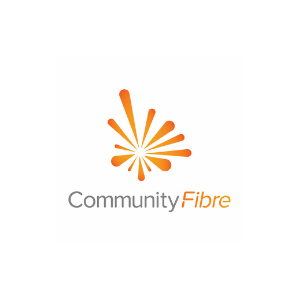Fibre Broadband Packages
Compare Fibre Broadband Packages In Your Area
Filter Your Results

Mbps *Avg. Speed
Month Contract
Downloads
Calls
Install
Per Month

Mbps *Avg. Speed
Month Contract
Downloads
Calls
Install
Per Month

Mbps *Avg. Speed
Month Contract
Downloads
Calls
Install
Per Month

Mbps *Avg. Speed
Month Contract
Downloads
Calls
Install
Per Month

Mbps *Avg. Speed
Month Contract
Downloads
Calls
Install
Per Month

Mbps *Avg. Speed
Month Contract
Downloads
Calls
Install
Per Month

Mbps *Avg. Speed
Month Contract
Downloads
Calls
Install
Per Month

Mbps *Avg. Speed
Month Contract
Downloads
Calls
Install
Per Month

Mbps *Avg. Speed
Month Contract
Downloads
Calls
Install
Per Month

Mbps *Avg. Speed
Month Contract
Downloads
Calls
Install
Per Month
Get Alerted When Faster Speeds Go Live In Your Area
If you’re considering installing fibre broadband in your home, there are many different providers and packages, depending on your area. This article aims to answer some of those common questions you might have as you decide which one to go for.
What are the benefits of getting a fibre broadband package?
First, you may be wondering what is the difference between fibre broadband and other broadband types. If you’re installing broadband for the first time, or upgrading an older set-up, you must make the choice between an ADSL phone-line connection and a fibre optic set-up. There are differences in price and download speed to consider here – ADSL is largely cheaper, but fibre optic offers much faster download speeds.
Generally speaking, the main benefit of opting for a faster, fibre broadband connection is that it is much more adequate for streaming services such as Netflix and YouTube videos. You can also connect multiple devices to your connection, which is a significant consideration if you live with other people – or even if you use multiple devices yourself.
What types of fibre broadband packages can I get?
Choosing a package can be confusing – there are several main providers, and many of them offer a multitude of packages. When choosing a package, you’ll want to consider aspects such as contract length – which is usually fixed for a set period of time – download and upload speeds, and any extra download costs. The average speed for fibre broadband is around 76 Mbps (compared with just 11 Mbps for ADSL connections), but the speed you choose should depend on what you want to use the internet for, how many people need to use it, and the area you live in. Many providers offer different speeds within each package, which is reflected in the monthly price they charge for the connection.
How do I choose the right fibre broadband package?
You’ll need to consider what you use the internet for, roughly how long you spend on it each day, and how many people need to use it. For households with a heavy internet usage, you should pick a package that offers an above average speed. If you know you’ll be using it to watch TV streaming services, the higher speed you pick the better viewing experience you will have. And if there are multiple people in your household, you’ll need a strong connection and speed that can cope with various devices using it at the same time.
There are also other factors to consider when choosing the right broadband package for you – including where you live, and what type of building you live in. Some providers are stronger in some areas than others, so make sure you check with them what kind of service you can expect. Most providers have postcode checker tools on their websites that make it easy to see what kinds of speeds you can expect based on where you live, and what kind of packages are on offer.
What should I look out for with fibre broadband and phone packages?
When you are choosing a fibre broadband and phone package, make sure you check all the details of the offer. Also consider broadband without landline fibre packages too. These days, most broadband packages will come with a landline – and you can even add a mobile phone subscription or sim card. If you’re opting for a joint internet and phone package, make sure you look out for how many minutes of call time and text messages are included within the monthly cost. If you will be using your phone regularly, you will probably be better off getting a package that includes unlimited monthly texts and calls. These will, of course, be slightly more expensive initially, but will save you more in the long-run. Also, look out for other charges in phone deals, such as the cost of international or premium number charges – as these can cost you dearly if you make even one of these calls.
On the broadband side, you should also check whether unlimited downloads are included. These days, they’re usually unlimited. However, there are still some – usually the cheaper deals – that only offer a certain quantity of downloads, after which there is a charge per megabyte. Also, make sure you look out for other extra charges, such as set-up fees. Most companies will charge a fee to install your system – which can be anywhere between £20 – £100 – adding a significant cost to your initial bill. However, many companies waive the set-up fee as part of promotions or special offers, so it’s worth looking out for these.
Many providers also offer incentives for new customers, so these are definitely worth considering as part of your search. You’ll find sign-up bonuses such as cashback, high street vouchers, home technology and other gifts regularly offered by the main providers, so again, make sure you factor these into the overall cost. However, don’t be swayed by attractive joining offers if the package is not right for you; the most important thing to consider is whether the deal will meet your needs and not tie you into something for longer than you want.
What should I look out for with fibre broadband and TV packages?
It’s also common to see packages that offer both broadband and TV. Providers such as BT, Sky and Virgin fibre broadband each have their own TV services, offering access to hundreds of TV channels through your package. With these types of deals, it’s worth looking out for what types of channels you’ll have access to, and whether there are any extra charges to subscribe to the ones that interest you. For example, most companies will offer standard access to a core range of channels, but extras such as sports or film channels will come at an additional monthly cost. It’s worth speaking to each provider to get their recommendations based on your interests – and don’t be afraid to negotiate extras. You’ll sometimes get discounted TV add-ons as a new customer. But beware – these discounts often end after a certain period of time, and then automatically renew at the full price. Make sure you are aware of all the details before you sign up.
